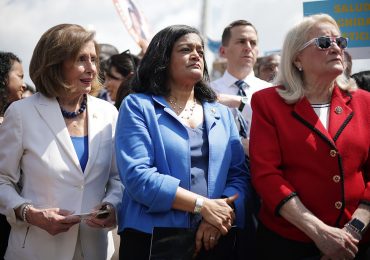It’s not just U.S. universities where the Israel-Hamas war is a touchy topic. This week, an American professor has sparked controversy in Malaysia after criticizing the Southeast Asian nation’s official pro-Palestinian stance on the conflict during a visiting lecture.
“A country whose political leaders advocate a second Holocaust against the Jewish people will never be a serious player in world affairs, and will certainly never be a friend or partner of the United States,” Bruce Gilley, a professor of political science at Portland State University, said during a keynote address at the University of Malaya on Tuesday, according to a now-deleted post on X in which he quoted himself.
[time-brightcove not-tgx=”true”]
The backlash was swift, as the University of Malaya came under criticism for hosting Gilley, and Gilley hightailed it out of the country.
The University of Malaya Student Union condemned Gilley in a statement Thursday, saying his remarks angered many students at the university. Another student group demanded the university issue an explanation for inviting Gilley or face demonstrations from students. And the higher education ministry on Thursday ordered the university to cancel any other programs involving Gilley and said it was looking into the incident, local media reported.
The University of Malaya issued a public apology on Thursday and said that “action will be taken against those found to be involved in the issue.”
Malaysia, like many other Muslim-majority states, has been a staunch supporter of the Palestinian cause and a vocal opponent of Israel’s military campaign in Gaza. Its government has faced criticism for its continued support of Hamas after the militant group’s attack on Israel last Oct. 7. Domestically, Malaysia has also been dealing with a rising tide of religious conservatism and increasing political pressure from Islamic groups.
Read More: Malaysia’s Defining Political Tension Takes the Concert Stage
Gilley tells TIME over email that his talk, one of several during a 10-day visiting professorship, was on Malaysian foreign policy. “I argued that FP is constrained by Malaysia government antisemitism,” he says. “The whole event proves the point of my paper: Malaysia is not fit to be a responsible actor in global governance.”
Gilley adds that he was “very disappointed” that Malaysia’s government “joined the witchhunt rather than defending academic freedom.”
Gilley has since deleted his post on X, citing the “safety and well-being of my colleagues at the University of Malaya,” though he reposted a screenshot of it.
“The quote from my keynote address reflects my views alone. I regret the harms I have caused to my academic colleagues,” he wrote.
Gilley also wrote in a separate post on Wednesday that Malaysian politicians were “going back to [former Malaysian Prime Minister] Mahathir’s advice to learn from the Germans on how to kill Jews.” He went on to slam television broadcasts in Malaysia that feature the pro-Palestinian slogan “from the river to the sea,” which some argue can be construed as an antisemitic call for the destruction of Israel.
Amid the uproar over his inflammatory statements, Gilley announced on Thursday that he had “safely departed from Malaysia, one step ahead of the Islamo-fascist mob whipped up by the government there.” He has also started a GoFundMe campaign to raise money to cover the out-of-pocket costs of his flight and hotel stay, which he says totaled over $2,300, after the university canceled his visiting professorship.
Malaysian politician Amira Aisya Abd Aziz said that Gilley’s remarks were “absolutely misleading and unacceptable” and “are falsely depicting Malaysia’s aim and goals towards peace for an independent Palestine state.”
“We have never advocated for a second Holocaust. In fact, it is the Zionist government of Israel that is currently committing genocide at this every moment,” she wrote on X.
This is not the first time that Gilley has found himself embroiled in academic controversy. In 2017, he was the subject of a petition to retract a paper he had written that was titled “The Case for Colonialism,” which sparked outrage—and several critical counteressays—for advocating for the replication of colonial governance in developing countries.
Leave a comment








